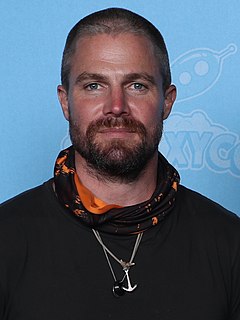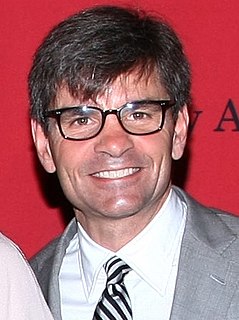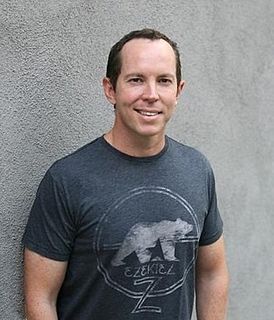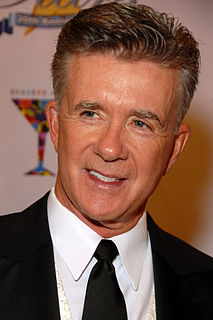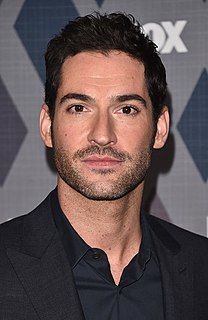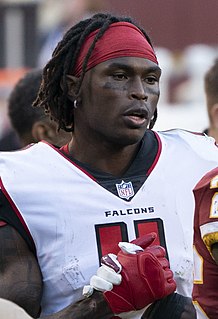A Quote by Lucas Till
Truthfully, in the beginning [of MacGyver] this could have gone either way, and as it turned out there was a version that was done wrong, which I'm not even going to get into. It was a pretty good idea and I liked where it was going, but then we got a chance to restart with Peter Lenkov [as executive producer/showrunner], who brought his vision to it. I remember reading his pilot script and it was just so exciting that I started hopping around my room.
Quote Topics
Around
Beginning
Brought
Chance
Could
Done
Either
Even
Exciting
Executive
Executive Producer
Get
Going
Gone
Good
Good Idea
Got
His
Hopping
Idea
In The Beginning
Just
Liked
Macgyver
Out
Peter
Pilot
Pretty
Pretty Good
Producer
Reading
Remember
Room
Script
Started
Then
Truthfully
Turned
Version
Vision
Way
Which
Wrong
Related Quotes
The way I pick movies is, first, if the script is any good. Then, if the script is good, who else is in it, the director, the producer, all that. If you have all that, there's a chance the movie will be great. If the script isn't right, or the director or cast isn't right, you've got no shot in hell.
I got a chance to get an actual label. I performed this slow song, this ballad I have. I just remember going to the first woman I saw in the room and just getting on my knees holding her hand just singing. And I was like, you know what, I got to just sell it. I remember that day they were like, yo we want to sign you. [After] I went into the bathroom, I started crying, [and] I called my mom. I was like momma – I did it.
The first day of the shoot, I had been in my trailer and came out dressed as Peter Parker in his slightly daggy corduroy jacket with his camera around his neck. Almost instantly, 500 or more people just stopped and started to watch us. They were calling out my name, calling out, 'Peter' or 'Spidey'.
I'm absolutely not an athletic person, but I used to be married to a runner. He would say that, especially in long-distance races, you could tell who was going to win and who wasn't, and if the person was present behind his eyes, if he was looking around and paying attention, you could be pretty sure he wasn't going to win. The person who was tranced out had a much better chance of winning. Because he or she had lost his or her governing self.
A "showrunner" as a position is a relatively new thing. It used to be the executive producer. That's not true anymore. Now it's evolved into this model where people look to showrunners and say, that guy is that show. It's just become a lot more interesting to know the showrunner and to get a sense of that person.
You have to accept that the moment you hand a script to a director, even if you've written it as an original script, it becomes his or her movie. That's the way it has to be because the pressures on a director are so staggering and overwhelming that if he or she doesn't have that sort of level of decision making ability, that sort of free reign, the movie simply won't get done. It won't have a vision behind it. It may not be your vision as a screenwriter, but at least it will have a vision.
You make other team think you going one way and you got to sell the move going that way and you've got to really make them think that you're going that way and they're going the other way. When it ends up ultimately being a perfect crossover is when you shake them so bad that they can't even get back into the play to play defense. You're already gone. That's what I think the perfect one is to where a teammate of his has to stop you from scoring.
The key to writing for Richard (Pryor) was to just push his buttons and then know when to push the buttons on your cassette recorder. You'd get him started, then surreptitiously start recording when he got inspired and started walking around the room and improvising in character. Then you'd get it all transcribed and take credit for it.
You've got to go out there and play the game the way it's supposed to be played. Then you get people to like you and appreciate your work by just going out there and competing every down. Jerry Rice was looked at in that perspective. He went out there and was a hard-working guy. He was going to give it his all.
I'm really going off of watching John Waters speak one time and I remember he just kind of talked and it was totally interesting. I wanted to hear about his life and how he got started and when did he think he made it, stupid stuff like that. And what his relationship with the mainstream is because he's so far out there, but then he became part of the mainstream in this weird way. He was really funny, though. Yeah, I have to work on my jokes.
What I think I've learned is that you're never going to get it all right, and you can't obsess about having a fact wrong or a date wrong or something like that, as long as you tried as best you could. If you've done the kind of research that you're sure is pretty good, then you just have to have confidence in it, so that nothing is perfect in life. I think that is what the criticism has helped me to understand.

